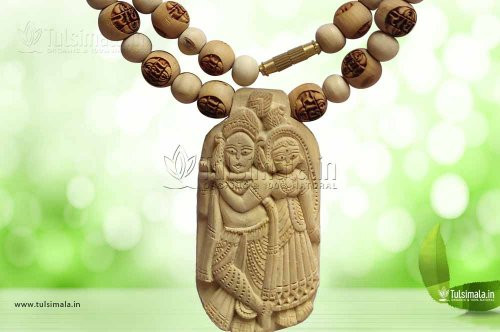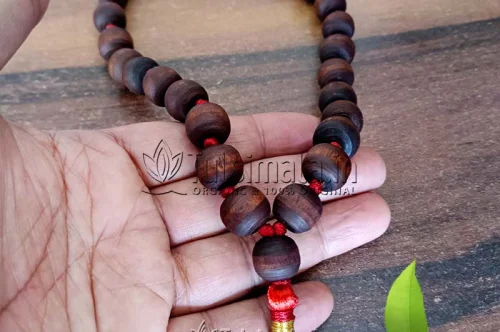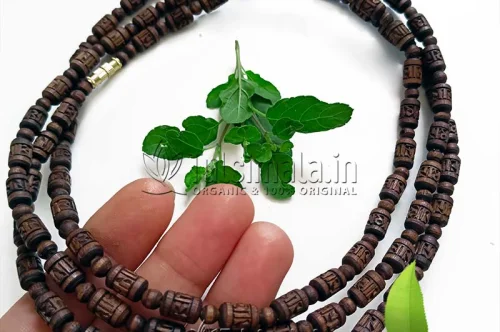Can we eat onion and garlic while wearing a tulsi mala?

In spiritual traditions, mainly in the Hindu religion, the Tulsi Japa mala holds great significance and is frequently worn by devotees for meditation, chanting, and prayer. Holy basil, also referred to as tulsi, is considered a holy plant, and its mala is used to maintain spiritual purity and create a connection with higher consciousness.
When it's about the question of wearing a Tulsi Kanthi Mala or Tulsi Locket Mala on the neck and eating garlic and onions, then it depends on a person's own spiritual belief and personal preferences.
Onions and garlic are considered "Tamasik" foods in Ayurveda and some spiritual traditions. Tamasik meals are thought to encourage slowdown, lack of understanding, and a heavy head, which may not be favorable to religious practices like jap, prayer, or meditation. To maintain mental purity and simplicity, some people choose to avoid eating garlic and onions while wearing a Tulsi Kanthi mala and Tulsi Locket Mala.
If you are a person indulged in the working profession or are a student or have a family, then it might be difficult to avoid onion and garlic on a daily basis. Therefore, wearing a Tulsi Kanthi mala does not strictly prohibit eating garlic or onions.
The Tulsi mala is meant to enhance a person's spiritual path, and if eating these foods does not interfere with your rituals, then it might not be an issue. Ultimately, it comes down to personal choice and how you align your diet with your spiritual goals. Many devotees choose to follow a sattvik diet (pure and light food) for better spiritual health, while others may not be as strict about it.
If you are connected to some communities, such as ISKCON, followers are advised to avoid onions and garlic as part of their spiritual discipline, which includes wearing Tulsi Kanthi Malas.
Ultimately, the choice depends on the individual's own beliefs and the specific spiritual traditions that they follow.
 English
English Hindi
Hindi








